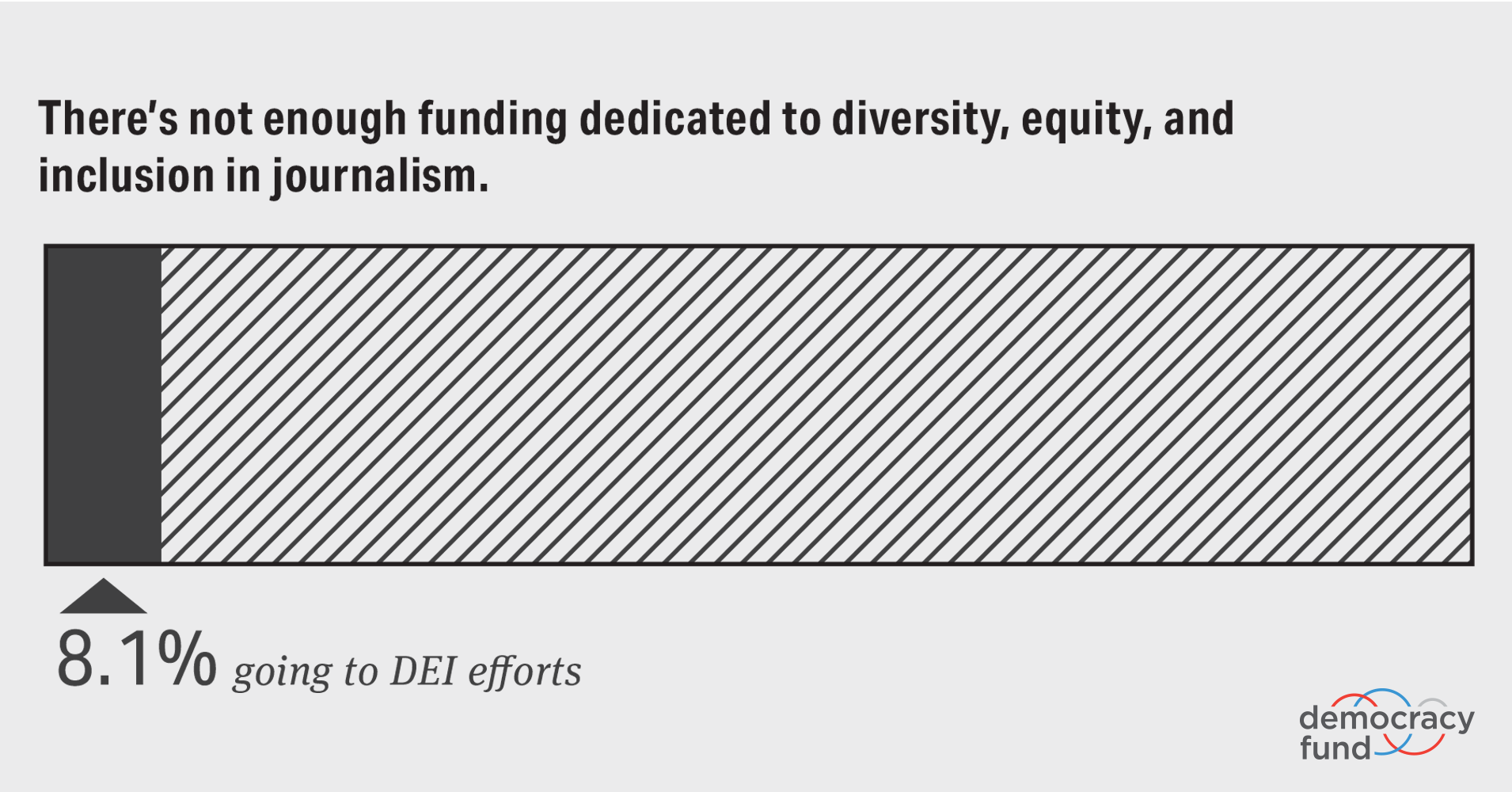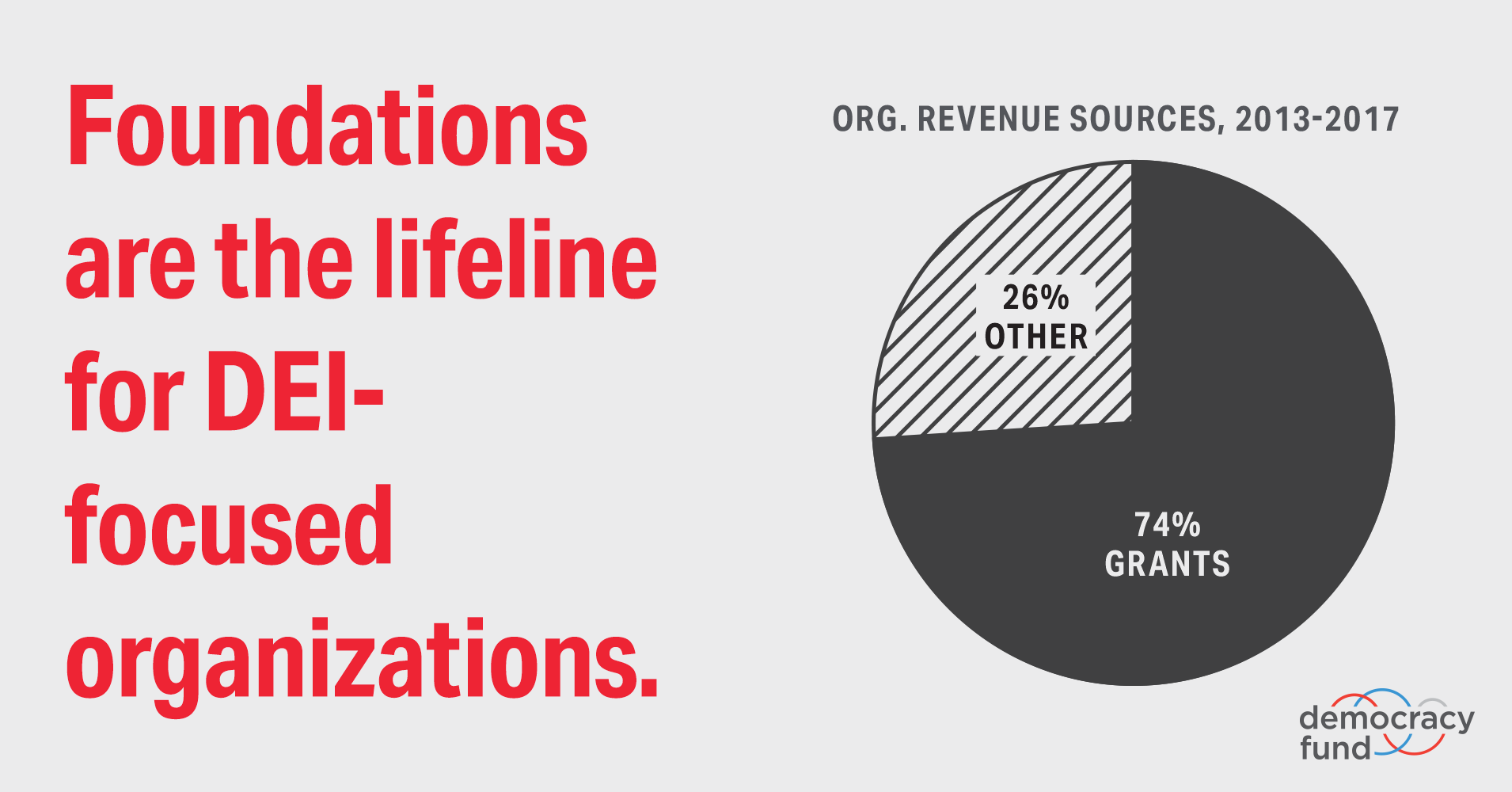Journalism has long fallen short of reflecting the diversity of the communities it purports to serve—something that is fundamental for supporting a healthy democracy. Last year, we released research from Dot Connector Studio that explored philanthropic support for increasing diversity, equity, and inclusion (DEI) in journalism from 2009-2015. We commissioned this research to learn how funders are investing—or not investing—in field-strengthening organizations working to make journalism more diverse and representative. What we found—unsurprisingly—was a significantly under-resourced field.
Now, we are turning to solutions. Our latest report, Advancing Diversity, Equity, and Inclusion in Journalism: What Funders Can Do, also produced by Dot Connector Studio, digs deeper into the vibrant field of organizations working to build DEI in journalism, and proposes concrete ways that funders can increase their support for this work.
Efforts to build DEI in journalism are led by both news outlets that specifically serve diverse populations and by field-strengthening organizations that provide support to these outlets, and to journalists from diverse backgrounds. These organizations are doing amazing work—often with limited resources—to create more representative journalism. But, as this research reveals, they need more support.
Our report found that:
- DEI-focused organizations receive a very small slice of journalism funding. This research confirms what we’ve long suspected: no matter how you slice the data, DEI within journalism is not a high priority for funders. Of the $1.1 billion that went into journalism more generally in the United States from 2013-2017, only 8.1 percent went to DEI-focused efforts.

- Funders are focused on big players. This research also reveals that funders are focused on bigger players, not a diverse pool of smaller grantees. The data show multiple funders supporting the same, better-resourced organizations. And while some organizations receive funds from multiple foundations, foundations are less likely to support many different organizations across the field at the same time.
- Foundations are the lifeline for DEI-focused organizations. This research shows that 74 percent of revenue for DEI-focused field-building organizations comes from grants and contributions. While many organizations are experimenting with new revenue streams, echoing trends in the broader nonprofit news space, organizations continue to be reliant on foundations to provide the bulk of funding.

What can funders do to improve the situation?
Funders need to work together with urgency and intentionality to avoid grantmaking that reinforces the inequalities this research highlights. Our report proposes two actions that funders can take right now:
1. Funders can join a new collaborative effort: the Racial Equity in Journalism Fund (REJF). This fund is a collaborative that includes Craig Newmark Philanthropies, Democracy Fund, the Ford Foundation, the Google News Initiative, and the News Integrity Initiative at the Craig Newmark Graduate School of Journalism at CUNY. REJF is committed to investing in news organizations led by and serving communities of color; supporting news projects that provide information to communities that face the greatest barriers in access to news; and strengthening the organizations that are developing creative and innovative ways to reach communities with relevant news.
“Media organizations led by people of color have long been a vanguard of our democracy, holding the powerful accountable for the ways it treats its most vulnerable citizens in ways mainstream media has often failed to do. It was organizations such as the black press that campaigned most vigorously to abolish slavery, to pass federal legislation against lynching, and to end Jim Crow, when mainstream media either ignored these stories altogether or sided with the powerful” —Nikole Hannah-Jones, journalist at the New York Times Magazine and co-founder of the Ida B. Wells Society of Investigative Reporting.
2. Funders can start sharing more resources across a diverse pool of grantees. Democracy Fund’s Journalism DEI Tracker is a tool that helps funders identify prospective grantees and find useful resources to share with current grantees. The tool includes over 70 organizations and outlets in the field; professional development and training opportunities for journalists from diverse backgrounds; a list of HBCUs, Hispanic-Serving Institutions, and Tribal Colleges with journalism and communications programs to include in recruitment efforts to ensure a more diverse pipeline; and resources for journalism organizations to promote respectful and inclusive coverage. We will continue to update this living document on an ongoing basis.


We hope this report will inspire more funders to action. But it’s just the start: Democracy Fund itself has more work to do to put equity at the heart of how it does its grantmaking in media and journalism. We are still learning and listening and remaining open and accountable.
